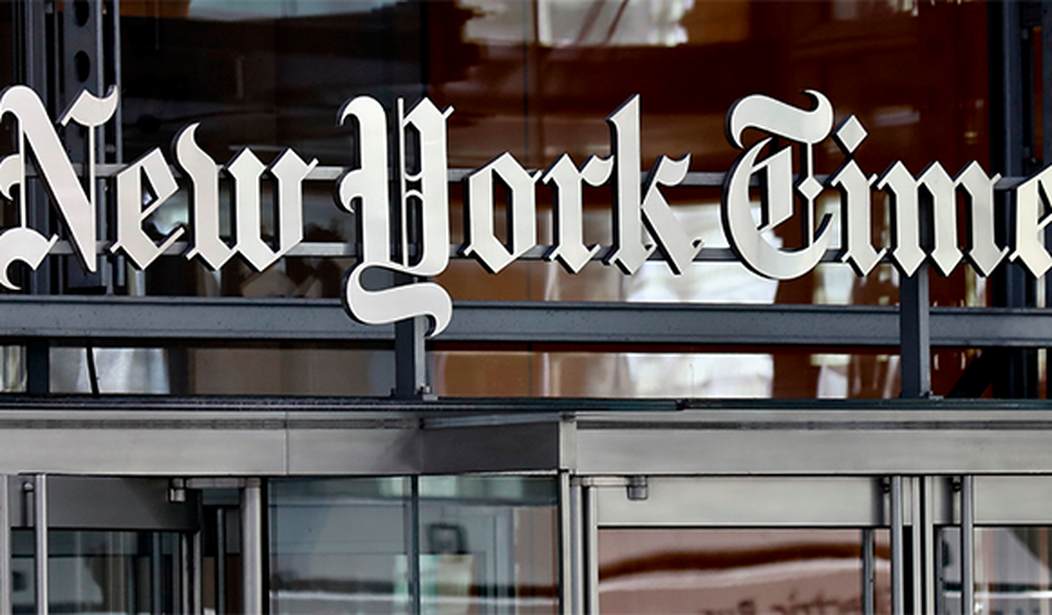The New York Times has published many items over the past few years that have been critiqued for failing to hold the Chinese Communist Party responsible for the persecution of their own people and their curtailing of freedom throughout their country.
But the newest one takes the cake.
In a new op-ed written by Regina Ip, described as a "legislator and a member of the Executive Council in Hong Kong," the argument is unquestionably made for stomping out any pro-Democracy sentiment in Hong Kong.
And while Ip is simply presented to readers of the New York Times as a "legislator," the reality is that she is the current chairperson and founder of the New People's Party, a strongly pro-Beijing political party. It has often been claimed that Ip's interest in founding the party in 2011 was in order for her to become the Chief Executive of Hong Kong.
She began her article with a swipe at the United States and other countries that have enacted sanctions against China for quelching the pro-Democracy efforts and the civil rights of people in Hong Kong.
No amount of outcry, condemnation or sanctions over the Chinese government’s purported encroachment in Hong Kong’s affairs will alter the fact that Hong Kong is part of China and that its destiny is intertwined with the mainland’s.
She goes on to say that the protesters, who were gassed, sprayed with paint, arrested, and harassed for almost a year in Hong Kong, were only advocating for an extradition bill that was "withdrawn." The suppression of their quest for democracy, she said, was overblown by locals, outsiders, and the global media. But to Ip, the acts of the protesters who wanted to maintain promises made to them in 1997 by Beijing assuring their independent government was simply too much and needed to be stopped.
Recommended
"Something had to be done," Ip said. "And the Chinese authorities did it."
She then praised the highly panned National Security Law, passed earlier this year, for finally diffusing the protests and returning to order in Hong Kong. Those who "retired," or "fled the country" were falsely being hailed as heroes. She didn't mention the several journalists who were arrested for publishing political thought that dared to dissent from the CCP.
She explains the NSL:
To some, the new national security law is especially chilling because it seems simultaneously vague and very severe. But many laws are vague, constructively so. And this one only seems severe precisely because it fills longstanding loopholes — about subversion, secession, local terrorism, collusion with external forces. One person’s “severe” is someone else’s intended effect.
Oh, okay. Well wouldn't want any "loopholes" that allowed personal freedom and any kind of protection from government overreach, so just fill those right in, right Ip? She explains that, really, Hong Kong has no choice in the matter because they're just too small.
Like it or not, Hong Kong is part of China. And given the two’s vast disparity in size and Hong Kong’s growing economic dependence on the mainland, the city’s progressive integration with China is unavoidable.
And finally, Ip tells the concerned world around Hong Kong to butt out of the situation entirely.
Foreign governments should not benchmark what happens in Hong Kong against standards that prevail in Western countries; those are governed by a political system entirely different from China’s. Instead, they should benchmark Hong Kong against the rest of China, and measure how the city can maintain its unique characteristics — openness, a commitment to personal rights and freedoms, respect for the rule of law and the ability to reinvent itself economically. Beijing’s national security law is saving “one country, two systems” by ensuring that Hong Kong does not become a danger to China.
Right, so to Ip, and the NYT editors who agreed to publish her, the idea that the pro-democratic voices of Hong Kong represent a threat to the Chinese Communist Party is the most important thing; not the obvious threat to the lives and freedom of the people of Hong Kong.

























Join the conversation as a VIP Member